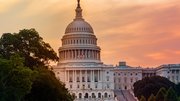Article
Legislative issues will dominate ATMIA annual conference
Attendees also will discuss how the U.S. Consumer Finance Protection Bureau (CFPB) might affect the ATM industry.

February 17, 2011
The Durbin Amendment, which would limit interchange fees, and its possible effect on the ATM industry will be a hot topic of discussion when the ATM Industry Association (ATMIA) meets Tuesday in Miami, said Kurt Helwig, president and CEO of the Electronic Funds Transfer Association.
“While there are numerous legislative and regulatory issues we are following, we have limited time in our session next week,” Helwig said. “Therefore, we will likely spend the bulk of our time on the Fed rules to implement the Durbin Interchange Amendment. The public comment ends the day before our session, and I suspect this issue is top of mind for many attendees.”
Attendees also will discuss how the U.S. Consumer Finance Protection Bureau (CFPB) might affect the ATM industry. “While they are still getting it staffed up and running, the CFPB has the potential to significantly affect many aspects of the payments business,” Helwig said.
Difficult issues facing the ATM industry have led the conference to expand its agenda, said Mike Lee, CEO of ATMIA.
“It is also becoming an industry summit in 2011 due to the critical crossroads the U.S. ATM industry has reached with the issues of interchange erosion and the need for IADs [independent ATM deployers] to reposition themselves in a survival game," Lee said. “The event kicks off with a regulatory overview and regulatory strategy.”
The Federal Reserve Board will write the final rules to implement the Dodd-Frank Wall Street Reform and Consumer Protection Act, a federal statute President Barack Obama signed into law July 21, 2010. The Dodd-Frank Wall Street law includes the Durbin Amendment, which concerns the industry, although the legislation does not specifically mention ATMs.
Whether those final regulations will affect the ATM industry is at the discretion of the Federal Reserve Board, and it is up to the industry to influence the Board by working with it, say ATM officials.
The Durbin Amendment, which was written by Sen. Dick Durbin of Illinois, requires that point-of-sale network transaction fees be reasonable and proportional. The Durbin Amendment’s restrictions on debit card interchange, however, could easily be addressed or dismissed because of the nature of ATM interchange.
“Interchange from the ATM flows in the opposite direction from the point-of-sale terminal,” said an industry observer. The Federal Reserve Board has defined an interchange transaction fee as a fee charged for the purpose of compensating the issuer. The board said the interchange fee for ATM transactions is paid by the issuer and flows to the ATM operator.
Although the Durbin Amendment does not specifically address ATM interchange, ATM industry officials will continue to monitor the Federal Reserve Board, making certain that it is not changed to include ATM interchange.
The industry also is focusing on the Durbin Amendment’s exclusivity provision regarding routing of debit card transactions.
ATMs should be considered merchants so they are not restricted in routing debit card transactions over a wide variety of networks, some argue.
Further, the Federal Reserve Board should allow merchants to choose between routing payment card transactions over one of four unaffiliated signature and PIN networks. Industry observers want members to choose between two signature networks and two PIN networks. ATM owners could then decide to route a transaction over the network that pays the highest interchange fee.
The Federal Reserve Board should designate ATMs as merchants because the machines provide cash to consumers who purchase goods and services from other local merchants, which industry officials argue is good for the economy, say industry executives.
If the Federal Reserve Board designates ATMs merchants, it would lead to deployment of more ATMs, making it easier for consumers to obtain cash. “More ATMs will be in service and more consumers will have access to cash,” said one ATM executive.
Steven Rathgaber, Cardtronics CEO, said during the company’s fourth-quarter earnings call that the proposed regulation would not restrict Cardtronics’ revenue sources. Rathgaber also addressed the issue of ATMs being able to route transactions over networks that pay the highest interchange.
“There is consideration being given to banning network exclusivity in the ATM space, which would mean that a major network could no longer be the exclusive pathway to route transactions to a particular bank,” he said. “That provision, if enacted, could be beneficial to us, as it would allow us to route transactions in the fashion that is most economically beneficial for us. We expect to see another draft of regulations from the Fed in April, and they are supposed to be finalized in July.”
The discussions of regulatory issues are taking place at ATMIA’s largest conference.
“It's our biggest event with over 800 delegates registered so far. The previous record was just under 740,” Lee said. “The conference also will have the most booths we have ever had at our expo. There will be 97 booths compared with our previous record of 75.”
The conference will be held February 22 to February 24.
Included In This Story
ATM Industry Association (ATMIA)
The ATM Industry Association, founded in 1997, is a global non-profit trade association with over 10,500 members in 65 countries. The membership base covers the full range of this worldwide industry comprising over 2.2 million installed ATMs.
 ChatGPT
ChatGPT Grok
Grok Perplexity
Perplexity Claude
Claude













